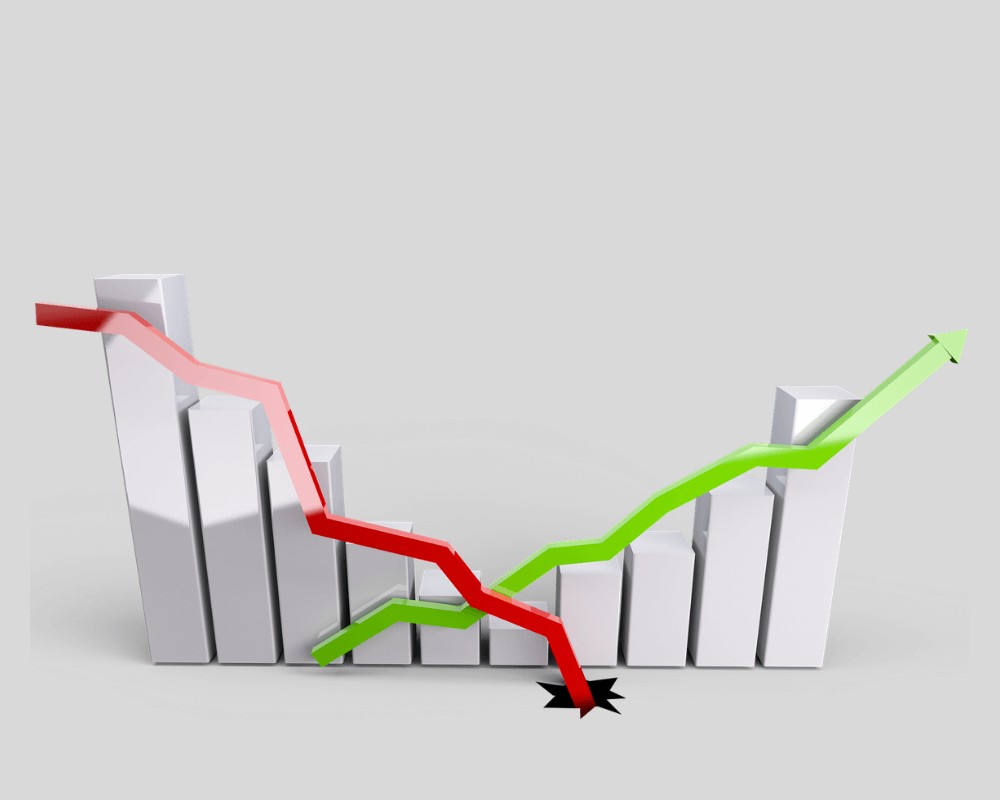7 Tips For Handling Stock Market Volatility

7 Tips for Handling Stock Market Volatility
Trading in the markets is not for the faint of heart. Seeing positions losing money is not something that anyone wants to experience at any point in their investing career. However, as investors, we need to be prepared for stock market volatility as it is part of the game.
Stock Market Volatility is a Given
Keep in mind that volatility is what allows for markets to exist in the first place. If there were not both buy-side and sell-side market participants, the ability to buy stocks would not exist.
By nature, I am a risk-averse investor, so the positions I initiate are much more conservative in nature than someone taking a long/short position on one particular security. I do not like to see ups and downs in my positions, therefore I would agree that my predisposition is more towards limiting downside risk than upside potential.

Over my career as an investor, I have lost and gained on my portfolio and learned to be OK with it at the end of the day. I would humbly offer the following bits of advice if you are struggling with accepting the volatility inherent to the modern stock market:
- See each stock you own as ownership in a company. Warren Buffett has a great saying: “Buy stocks as if the market will close tomorrow with no set date for reopening.” What does this mean for investors? To buy quality companies as quality prices. My personal strategy is to take positions in dividend paying stocks that provide goods and services I own each day. I currently own stocks like $PG and $SBUX – I personally use each product on a daily basis. This helps mold my mindset to the idea that I am buying actual ownership in companies rather than electronic blips that happen to go up and down. This mentality helps to divorce one’s mind from the stock market volatility inherent in day-to-day trading.
- Trade in smaller increments. Another good strategy is to trade in smaller increments. By doing so, this will help your mindset as the losses (and gains) will typically not be very large on any given day. This way you can remain calmer and adjust and adapt your strategy as needed. Once you begin to get more comfortable with seeing up and down markets, you will then be able to move up to bigger increments.
- Diversification. This might be the biggest ally in your arsenal. I currently have 31 different positions in my portfolio and I hope to keep that number growing. I find that in buying shares in many different companies, my emotional fortitude is better kept in check. This is because I might have 15 positions down on a day, but then again 16 might be up. By owning a diversified portfolio, I am not at the whims of the day-to-day stock market swings.
- Don’t trade money you can’t afford to lose. If you struggle with seeing the ups and downs of the markets, then make sure the money in the market is above and beyond your day-to-day needs. By keeping a good nest egg of cash or lower-risk investments on hand, you might be able to offset some of the anxiety of having money you ‘need’ for living expenses set aside in these safer vehicles. A good saying is “never gamble with your rent/mortgage payment.”
- Redefine ‘losses’ as ‘stocks on sale’. This is a tough one but necessary. If you happen to see a stock, say $AAPL, down on a given day, learn to see it as a possible buying opportunity rather than as a loss. Once you begin to think like this, you will begin to be opportunistic in your buying perspective. Begin to divorce yourself from ‘The Herd Mentality’ which seeks to only buy when others are buying and sells when others are selling.
- Rework your relationship with money. One area that I would encourage you to explore is your belief systems around money. Do you believe that you will never be able to earn more money? Do you believe you will not be provided for on a daily basis? Or do you think that your ability to earn and save is limited? Perhaps try to seek out why you dislike seeing losses so much. I admit that I am in the same boat of not liking losses, but my belief system is that it is only money, the companies I own are fantastic and the future will work itself out.
- Keep the end game in mind. Similar to above, keep the end game in mind. As long as you are investing in solid companies, at good price points, and are well diversified, you are doing investing correctly. Sure you might lose some money here and there, but over the course of history, the stock market has been one of the single biggest wealth generators.
If none of these ideas help and you still experience strong anxiety in looking at the daily market movements, then my advice would be not to trade at all. Adopt a ‘set-it and forget-it’ mentality to your portfolio. Let someone else manage your 401k, IRA, or money. And agree to not look at the balance except maybe once a year for tax purposes. We each have a special skillets and purposes on this earth – find your bliss my friends!
Good luck and happy investing all!

